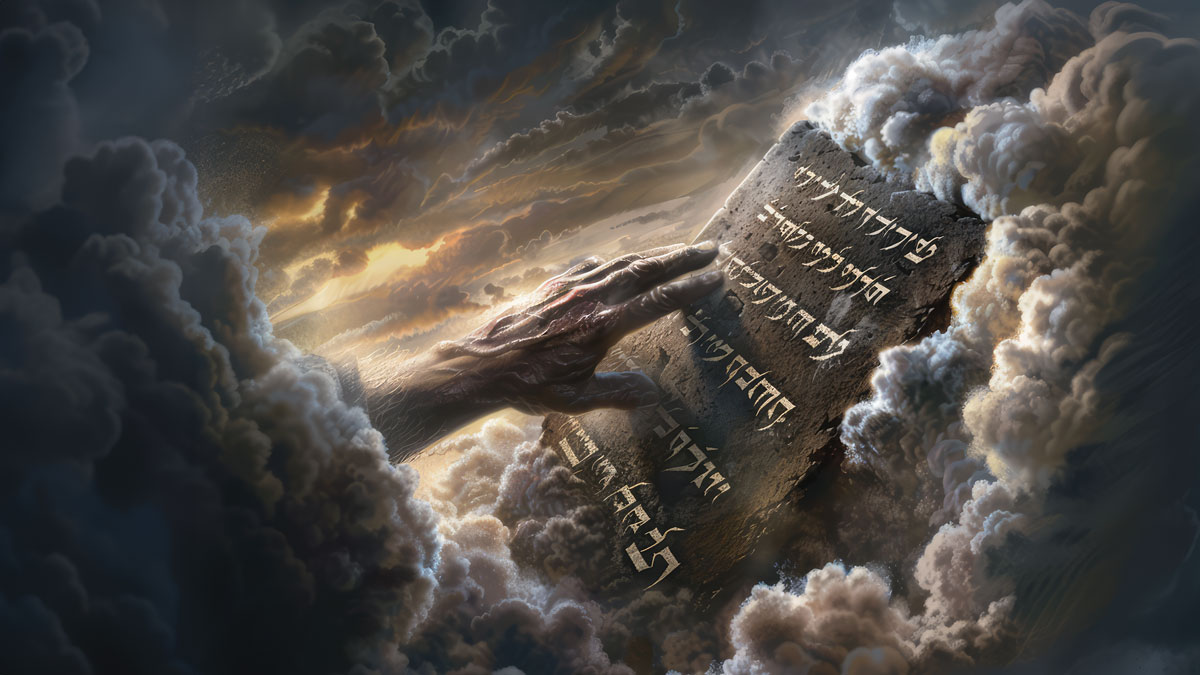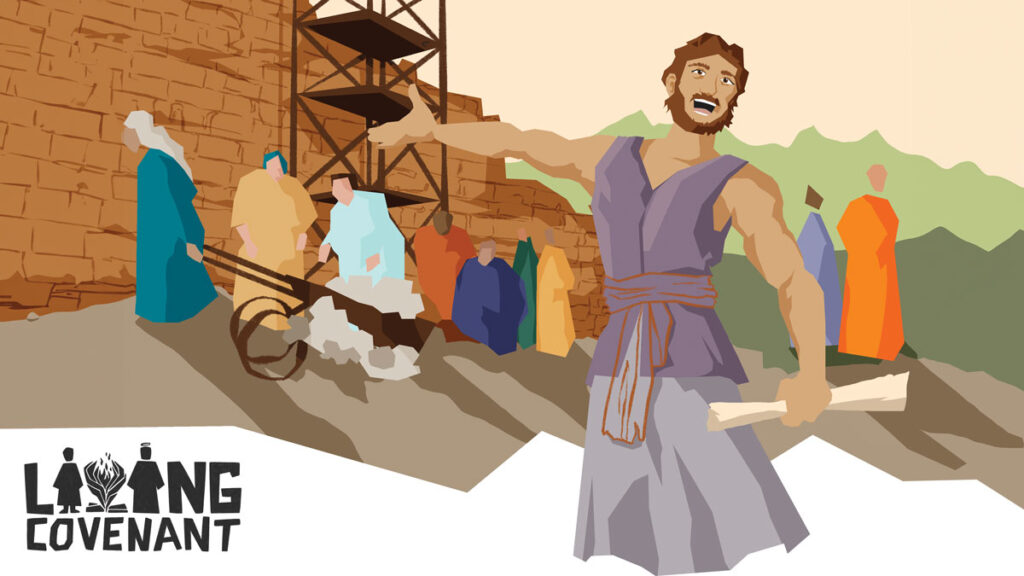The doctrine of inspiration teaches that God trusted men and women to record His messages to us. However, there were three times, no make that four, when He decided to take total responsibility for what was written. He wrote them Himself. I believe it is worth taking a close look at these passages.
We find the first occurrence in Deuteronomy 9:10.
“The Lord gave me two stone tablets inscribed by the finger of God. On them were all the commandments The Lord proclaimed to you on the mountain of the fire, on the day of the assembly.”
Most people have heard of the 10 Commandments. Indeed, they are used as the basis for civil law. We know them as God’s LAW.
Seventh-day Adventists are very familiar with the 10 commandments, particularly the fourth commandment. There is something comforting and secure about having a list of rules/law to follow that were written by God. As I read through the Ten Commandments, I see compelling wisdom:
Don’t murder
Don’t steal
Don’t tell lies about others
Don’t commit adultery . . .
It’s hard to argue with such wisdom. They are obvious choices to include in a set of rules. I doubt there is a parent who wouldn’t give the thumbs up to number five! “Honour your father and mother. . .” Wouldn’t that make parenting blissful? Number 10 instructing us not to covet is not one I would have immediately thought of for inclusion. To have made it into the 10 suggests that we are dealing with a mind that goes far beyond human wisdom. Commandments one to three make sense if you are God. It’s the foundation for a perfect relationship between God and His people. Number four is a delightful surprise in the form of a gift—rest.
The second passage written by God is in Daniel 5. We are all familiar with the story. King Belshazzar is hosting a big feast in which he uses the gold and silver goblets taken from the temple in Jerusalem. As an act of contempt and defiance to God, he called for these vessels to be brought into the feast. We pick up the story in verse 3–6:
“So they brought in the gold goblets that had been taken from the temple of God in Jerusalem, and the king and his nobles, his wives and his concubines drank from them. As they drank the wine, they praised the gods of gold and silver, of bronze, iron, wood and stone. Suddenly the fingers of a human hand appeared and wrote on the plaster of the wall, near the lampstand in the royal palace. The king watched the hand as it wrote. His face turned pale and he was so frightened that his legs became weak, and his knees were knocking.”
Long story short, Daniel is brought in to interpret the message.
MENE, MENE, TEKEL, PARSIN
”Mene: God has numbered the days of your reign and brought it to an end.
Tekel: You have been weighed on the scales and found
wanting.
Peres: Your Kingdom is divided and given to the Medes and Persians.”
Belshazzar had been judged by God and had a few short hours remaining.
This all happened more than 2000 years ago, yet we still refer to this incident today. Even people who have no belief in the Bible might still say, “the writing is on the wall”. Something has happened, events are occurring that will cause an inevitable outcome. In other words, judgement has been passed.
In John chapter 8:3–8 we find the third time God writes in person.
“The teachers of the law and the Pharisees brought in a woman caught in adultery. They made her stand before the group and said to Jesus, ‘Teacher, this woman was caught in the act of adultery. In the Law Moses commanded us to stone such women. Now what do you say?’ they were using this question as a trap, in order to have a basis for accusing him. But Jesus bent down and started to write on the ground with his finger. When they kept on questioning him, he straightened up and said to them, ‘Let anyone of you who is without sin be the first to throw a stone at her.’ Again he stooped down and wrote on the ground.”
The teachers of the law and the Pharisees had the law on their side. They were in the right, ready to press charges and pass judgement. Case opened and closed. Now all that needed to happen was the stoning.
This time God, in the body of Jesus, stood there. The 10 Commandments which had been written by the finger of God were handed to Moses on a mountain covered in thick cloud. Belshazzar and his company had seen the hand of God write on the wall. Now in the courts of the temple in Jerusalem we find, not just a finger, nor just a hand, but the whole person of Jesus about to write once more. John doesn’t tell us what Jesus wrote in the dust. It’s possible he didn’t know, but His words made a big impact on those present; they walked away, one by one, without stoning.
We have seen God write His law, we have seen God pass judgement and now we see what happens when God confronts a sinner.
Verse 10,11: “Jesus straightened up and asked her, “Woman, where are they? Has no-one condemned you?” “No-one, sir,” she said. “Then neither do I condemn you,” Jesus declared. “Go and leave your life of sin.”
How is it that Jesus could say this to the woman? Here was the law; there needed to be judgement. Could it be that Jesus provided an insight to what He was about to do, to take on the sins of the world, be judged and take the punishment. “Then neither do I condemn you”, said Jesus. The woman caught in adultery got a preview of what lays ahead for every sinner who comes to Christ!
God wrote on stone, on a wall and in the dust. Where else might we expect to find Him writing?
In 2 Corinthians Paul tells the early Christians that God would actively write on their hearts.
“You show that you are a letter from Christ, the result of our ministry, written not with ink but with the Spirit of the living God, not on tablets of stone but on tablets of the human hearts“
(2 Corinthians 3:3).
Today the Spirit of the Living God is still writing on people’s hearts. God‘s promise to write on my heart gives me the confidence to know I am in the hands of the Lawgiver and Judge who also happens to be my Advocate and Saviour.
Kathy Burns writes from Bundaberg in Queensland.






